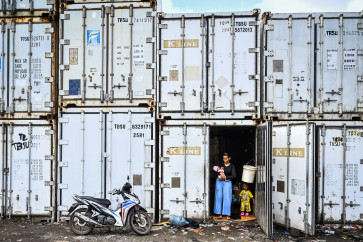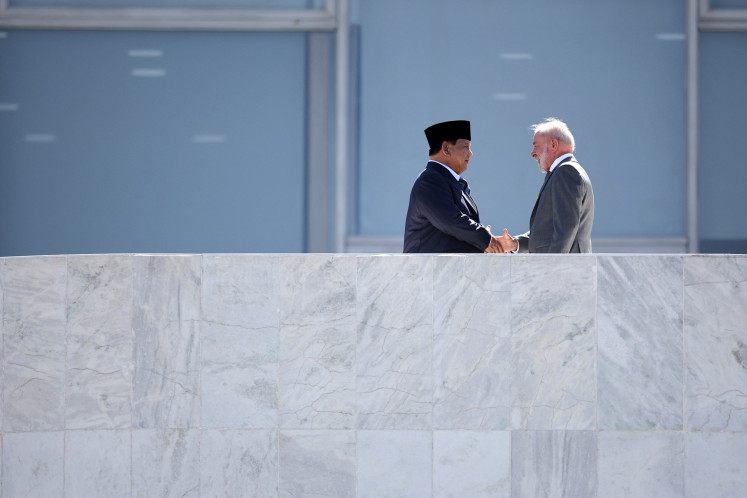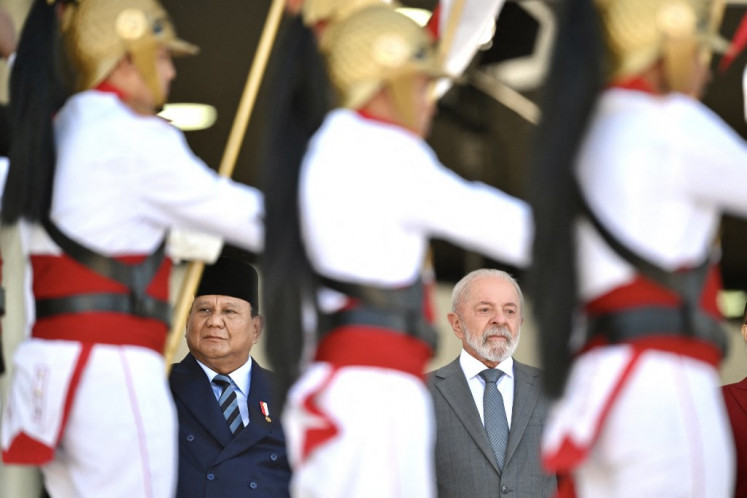Popular Reads
Top Results
Can't find what you're looking for?
View all search resultsPopular Reads
Top Results
Can't find what you're looking for?
View all search resultsWest Java dancers told to cut out provocative moves
West Java Governor Ahmad Heryawan of the Prosperous Justice Party (PKS) issued a ban last month forbidding local dancers from wearing sexy costumes and executing provocative dance moves, in what he described as a move to uphold West Java’s reputation as a religious province, it has been revealed
Change text size
Gift Premium Articles
to Anyone
West Java Governor Ahmad Heryawan of the Prosperous Justice Party (PKS) issued a ban last month forbidding local dancers from wearing sexy costumes and executing provocative dance moves, in what he described as a move to uphold West Java’s reputation as a religious province, it has been revealed.
Head of the West Java tourism and culture agency, Herdiwan Iing Suranta, said Thursday that the call had been made mid January.
“The administration is not banning any dances. We are urging artists not to be ‘too attractive’.
They should not wear strapless or see-through costumes. They should not dance like Inul either,” he said, referring to dangdut singer Inul Daratista, who is famed for her gyrating dance moves.
He said Jaipongan and Ketuk Tilu traditional dances had caused members of the public to feel uncomfortable.
“I don’t want to start a public debate about what is art. We are only accommodating the opinion of the public, which feels uncomfortable with such shows.”
When asked whether the call was related to the pornography law, he replied: “It may have something to do with it.”
Bandung Arts Institute dance lecturer Mas Nanu Muda said he rejected the administration’s request to scrap Jaipongan and Bajindoran from the 2009 Dago Tea House performance.
“The three Gs — geol, goyang and gitek [hip movements] — is the trademark of the dance. I asked them why has [the dance] been banned? They just said it was an order.”
Gugum Gumbira, who created Jaipongan, a traditional Sundanese dance in response to Indonesia’s first president Sukarno’s banning Western music [specifically rock and roll] in 1961, said he did not understand the motive behind the governor’s ban.
However, he said that the moves employed in Jaipongan — which was inspired by traditional dances Ketuk Tilu and Bajidoran — each had their own specific meaning.
“This is not politics. Try gathering and speaking with all the artists. Don’t make this call to limit creativity,” Gugum said.
Herdiwan said the administration had invited senior artists, including dancer Tin Rostini Asikin and Mak Ageung, to help disseminate the call.
“If the call is made by the administration, the public will accuse us of stifling their creativity. We have met with senior artists as an initial step [on this issue],” he said.










